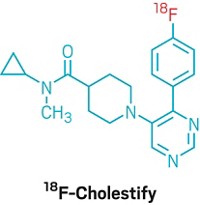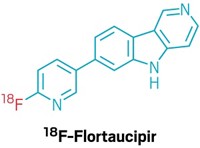Advertisement
Grab your lab coat. Let's get started
Welcome!
Welcome!
Create an account below to get 6 C&EN articles per month, receive newsletters and more - all free.
It seems this is your first time logging in online. Please enter the following information to continue.
As an ACS member you automatically get access to this site. All we need is few more details to create your reading experience.
Not you? Sign in with a different account.
Not you? Sign in with a different account.
ERROR 1
ERROR 1
ERROR 2
ERROR 2
ERROR 2
ERROR 2
ERROR 2
Password and Confirm password must match.
If you have an ACS member number, please enter it here so we can link this account to your membership. (optional)
ERROR 2
ACS values your privacy. By submitting your information, you are gaining access to C&EN and subscribing to our weekly newsletter. We use the information you provide to make your reading experience better, and we will never sell your data to third party members.
Biological Chemistry
Imaging Enzyme Replacement Therapy
PET imaging is used for the first time to monitor therapeutic enzyme distribution and lifetime
by Stuart A. Borman
June 7, 2010
| A version of this story appeared in
Volume 88, Issue 23
Positron emission tomography (PET) imaging has been used for the first time to monitor enzyme replacement therapy (ERT), an advance that could lead to more accurate dosages for patients (Proc. Natl. Acad. Sci. USA, DOI: 10.1073/pnas.1003247107). Direct enzyme replacement is used to treat Gaucher disease and other rare lysosomal storage diseases in which cell lysosomes fail to digest and recycle biomolecules properly owing to mutations in genes for specific enzymes. ERT restores normal enzyme to patients, but there are unanswered questions about optimal dosing, which organs an enzyme traffics to in the body, and how long the enzyme lasts. Stephen G. Withers of the University of British Columbia, Vancouver, and coworkers covalently labeled the active site of the enzyme used to treat Gaucher disease with 18F-glucose and injected it into mice. The team then used PET imaging to monitor the enzyme’s distribution and longevity. The technique is “a powerful research tool with an immediate clinical application to Gaucher disease and a clear path for application to other ERTs,” the researchers write.




Join the conversation
Contact the reporter
Submit a Letter to the Editor for publication
Engage with us on Twitter